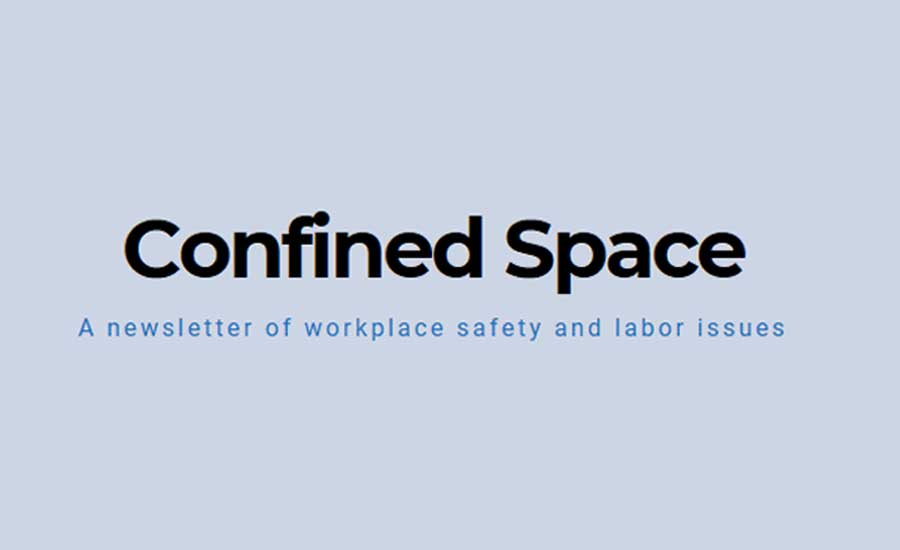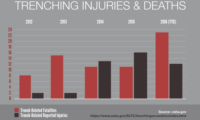Posted with permission from Confined Space, a newsletter of workplace safety and labor issues.
Nineteen years is a short life, but that’s all that Kyle Hancock of Glen Burnie, Maryland will get.
Hancock died, buried alive earlier this week in a 15-foot unshored trench. Rescuers worked almost 12 hours through a long, rainy night trying to recover his body.
The trench that killed Hancock was between 15 and 20 feet deep according to news reports, and had not been properly shored to prevent its collapse. OSHA has a good trenching and excavation standard that requires all trenches over 5 feet deep to be shored.
The OSHA website also has good information on trench safety, and OSHA’s onsite Consultation Program provides free onsite health and safety help to small and medium size employers. Some jurisdictions have aggressively pursued criminal prosecutions, but they keep happening.
In other words, there’s no excuse for a worker to die in an unprotected trench. And this wasn’t just two guys in a pickup truck. Hancock’s employer, R.F. Warder, has been around long enough to know better: “R.F. Warder has been building, renovating and maintaining these mechanical systems in the Mid-Atlantic region for almost two decades.”
Kyle Hancock isn’t the first worker to die in a trench in Maryland recently. A construction worker died when a trench collapsed at a Prince George’s County work site in July 2017 and another was killed in Severn, Maryland a 7-foot deep trench last August. A very lucky worker was rescued from a 16 foot deep trench in Cumberland, MD in 2016.
Most workers trapped in trench collapse don’t make it out alive. A cubic meter of dirt weighs around 3,000 pounds, as much as an automobile. Not only can it take hours to dig someone out without rescuers becoming trapped, but the weight of the soil can kill a person even if their head isn’t covered. For example, in 2014, Robert Matthew Craig, 26, of Myersville, MD, was rescued after being buried from his waist down in about 10 feet of rock and dirt, but later died. Many workers rescued alive from trench collapses later die of crush syndrome, a medical condition that results in a major shock to the organs and kidney failure.
Between 2011 and 2015, according to the Bureau of Labor Statistics, 94 American workers were killed in trench collapses. In 2016, 23 U.S. workers died in trench collapses and 15 died in the first five months of 2017.
I write a lot about trench collapses (Most recently here, here, here and here.) They make me mad, because they’re so preventable.
I don’t want to write about them any more.
Click here to visit Confined Space.
Click here to donate to Confined Space.









